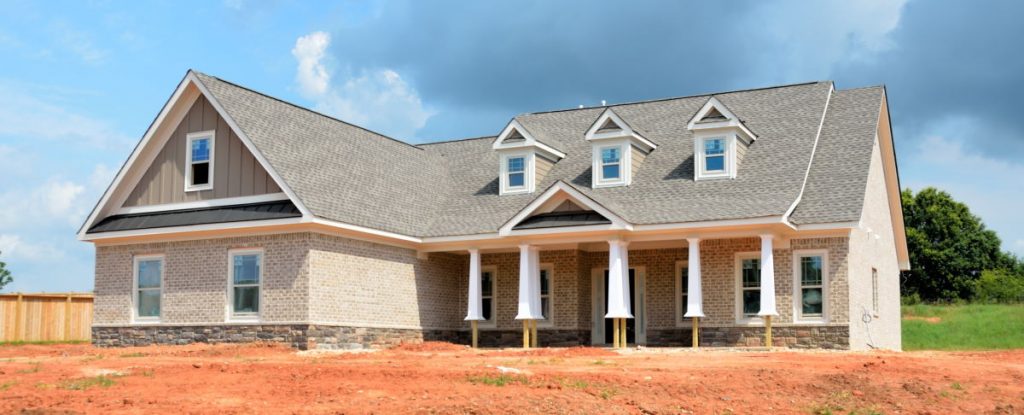If you’re looking to get a good deal on a house for a fix and flip, one of your best bets will be a foreclosure or pre-foreclosure home. These are distressed homes being sold by homeowners that are experiencing some sort of financial struggle.
This is great news for real estate investors. Usually, you can snag these properties for below-market prices and close fast, getting your portfolio going right away.
When it comes to foreclosures, get the best deal when you act right away. Foreclosures can quickly become competitive and you may be one of many investors interested in buying one. Knowing if a house is in foreclosure before too many other investors know can give you the leg up on the competition. But how do you find out if a house is in foreclosure?
Here’s how.
Check Online
Foreclosures are public record and most counties publish their records online today. When you’re looking into foreclosures, head to the county assessor’s first. All you need is the property address for this step. Once you have the address, enter it into the search bar and get the property’s parcel number. Write the number down and then head to the county recorder’s website.
On the county recorder’s website, enter the parcel number. It should pull up the recorded documents for the property including any notice of defaults, or trustee sale notices. These are all public record and a part of the information you can find.
Go To The Courthouse
If your county isn’t online yet, you may have to go to the courthouse in-person to see the documents yourself. You’ll need the same information you would use for searching online including the property address and parcel number to get the information you need.
If you search too early though, the information may not be there, even if the notice was filed. If the recorder’s office is behind, the documents may not have been scanned yet. Check back often to find out if you aren’t able to locate the property yet.
Check Bank Websites
Some banks post their foreclosures on their website. They are not in the business of owning homes, so they want to sell them fast. If the local banks have foreclosure pages on their website, visit them to see what homes may be available.
Check Zillow
Normally you’d go to Zillow to find houses for sale, but many people don’t realize foreclosures are listed on there too. You can sort by foreclosures in the listing type so you don’t have to filter through all the non-foreclosures listed.
Check FlipScout
FlipScout by New Silver is dedicated to finding properties that make sense for house flippers, including foreclosures. You can also view other interesting information about the property, including your potential profits if you were to flip it and much more.
The tool is free to use but requires you to sign up by email.
Check The MLS Listings
Zillow and the MLS usually have the same listings, but on the off-chance that the MLS has something Zillow doesn’t, ask a real estate agent to check the MLS listings for you. The faster you jump on a foreclosure the quicker you can get it going with no competition, so asking around to get help is important.
When dealing with a realtor, make sure that you pre-vet them carefully and only work with professionals that come with previous reviews or references.
Work With A Real Estate Agent
Even though you want to keep fees down when you’re buying a foreclosure, sometimes your best bet is to enlist the help of a real estate professional.
The right real estate agent can point you in the right direction, help you evaluate homes to determine if they’re a good buy or a money pit, and get you through the tedious foreclosure process, since buying a foreclosed home is a little different than a standard sale.
What To Do When You Find A Foreclosure
Once you find a foreclosure you want to buy, you have to work with the bank that owns it. You don’t have to get your financing from them, but you need to know their procedures and requirements to buy the home since it can be a long process.
First, find out if the home is going to auction or if it’s listed with a real estate agent. Banks usually auction a home off first and if that doesn’t work, they hire a real estate agent to sell it. If it’s already with the real estate agent, you can work through the process like a regular sale, just know that you buy the home as-is with no contingencies.
If it’s still going to auction, you’ll need to know the requirements to buy it. Most auctions have a minimum down payment requirement that you must have ready at the auction or within a short time after making a winning bid. They also have a shorter window to close the loan, which means you need your financing in order before you bid.
Bottom Line
It’s easy to find foreclosure homes today, especially with the help of the internet and services like FlipScout. Don’t underestimate the power of a real estate agent helping you through the process either, especially if you’ve never purchased a foreclosure before. The more professionals you have on your side, the faster you can find the right home and close on the sale.
Once you find a home, add a licensed appraiser or inspector to your list of professionals who will help you so you make sure you aren’t buying a money pit and will make money on the purchase.
Foreclosures are a great way to pick up potential flip properties at a much lower price than other typical homes on the market. If you go into a foreclosure deal prepared, you could have a lot to gain in terms of profitability after renovations have been completed.



